- Home
- slideshows
- miscellaneous
- A Google programmer just published a book of hilarious cartoons that shows what it's really like to work at the search giant
A Google programmer just published a book of hilarious cartoons that shows what it's really like to work at the search giant
Meet Manu Cornet, the cartoonist behind "Goomics."

The illustration that Cornet is perhaps best known for is this cartoon, poking fun at the organizational structures of some of tech's biggest companies.
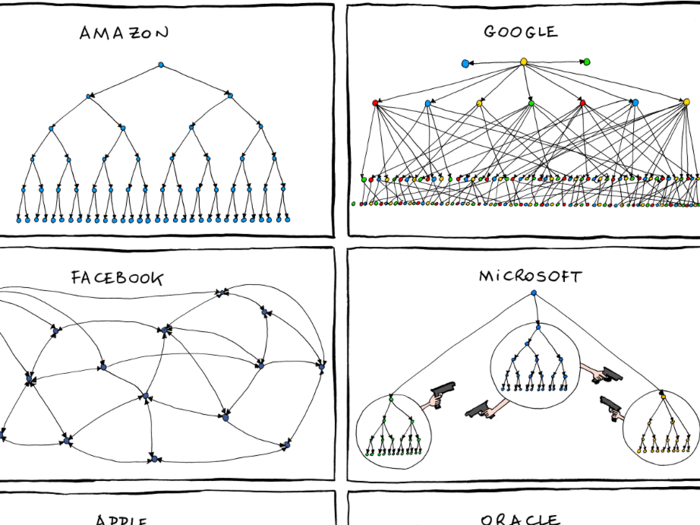
"I almost didn't release this one," Cornet said. "This is probably the most popular of my illustrations but I didn't really think it was that funny. So this shows you how clueless I am at predicting what drawings people will like."
The drawing appeared in The New York Times and Microsoft CEO Satya Nadella cited it on the first page of his book "Hit Refresh," writing that this was what convinced him to change Microsoft's culture.
In the 148-page book, Cornet shows how employees make good use of the famous perks Google offers, such as free food.
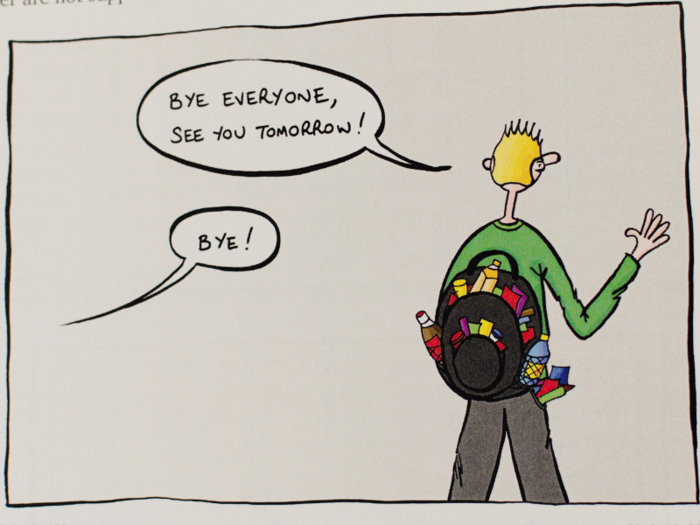
Cornet notes how sometimes those perks are abused.
He says that some Googlers don't observe common-sense rules, such as "snacks and take-out boxes for lunch and dinner are not supposed to be taken home to feed the whole family."
That Google allowed Cornet to release the book could be a sign that regardless of the many changes at the company, managers and workers can still laugh at themselves.
Each chapter of Cornet's book is titled by a letter of the alphabet, in honor of Google parent company Alphabet. For example, F is for Fifteen, which he says is the average number of pounds new Googlers, or Nooglers, gain in their first few months.
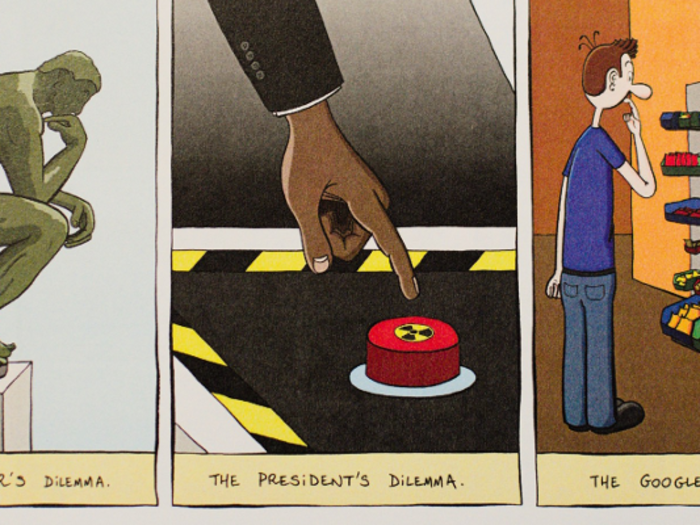
S is for Spoiled, which Cornet argues is what Googlers are. He writes that employees can experience three stages regarding all their Google benefits: delight, tolerance and entitlement.
"It's been but a few weeks since the Googler joined, and already it's amazing how much the world owes him," Cornet joked in his book. "This is a small minority of employees, but they tend to be rather vocal."
"I would say that most people at Google are happy with what they have," Cornet said. "Some do complain and I tried to take a balanced view. I tried to show how appalling it is to complain when we get so much."
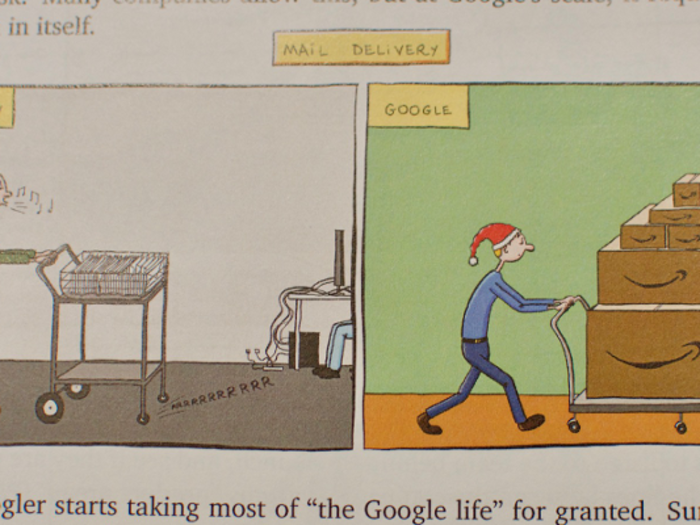
In one cartoon, Cornet draws Google's former CEO Eric Schmidt, announcing a series of raises, bonuses and gifts and, you guessed it, someone still wants more.
In the interview, Cornet is frank about where he falls on the scale. Google is the only workplace that he's ever known. Though he knows very few workers around the world enjoy the same luxuries, he still has nothing from his own experience to compare it to.
Still, he says one can't take it for granted.
Some of Google's culture is surreal, he says.
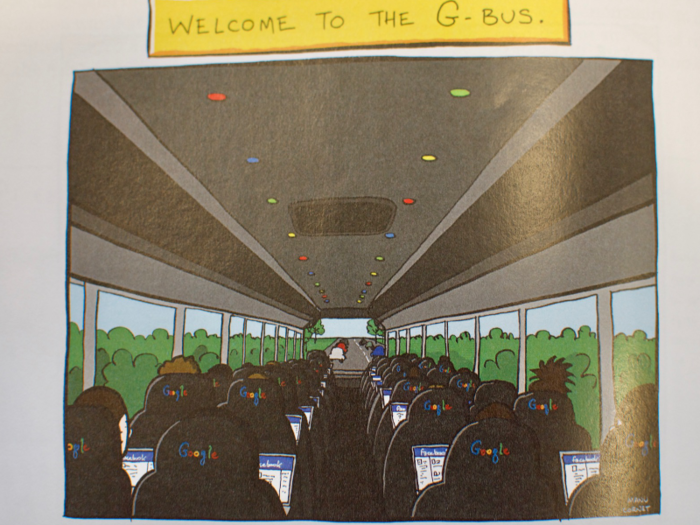
Much has been made of the Google Bus, also known as the G-Bus.
The word from Googlers in the past is that the bus ride allows them time to do their work.
In the above photo, Cornet suggests that not all Google employees are working during the commuter — or for that matter, supporting Google+, the company's less-than-ubiqiutous social network.
J is for Jargon and Google has plenty of that.
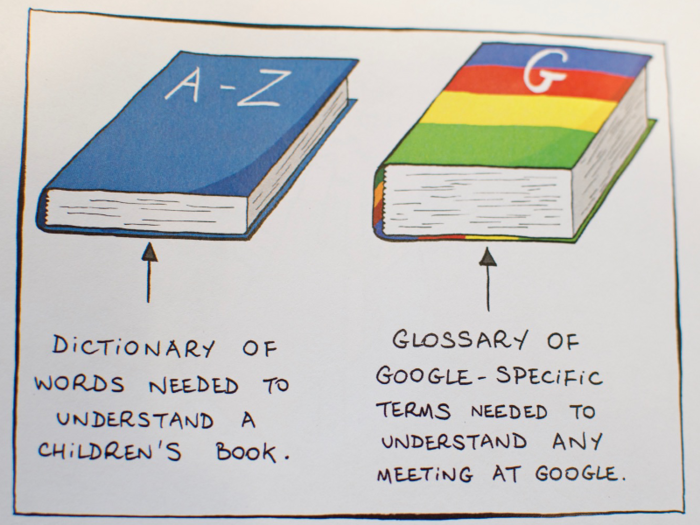
It's best for Nooglers not to let on when they don't understand terms like "dog fooding," which refers to when Google's own employees test one of the company's products, wrote Cornet.
He also tried to decipher some of the limitless acronyms that are bandied about at Google. A PM is a product manager, but that's not to be confused with a TLM, which is a technical lead manager.
"Employees who join a new team often undergo specific training explaining the architecture of the software they are going to work on," Cornet wrote. "If that software happens to be a complex beast like Search or Gmail, they are in for a treat."
Apparently, none of Google's iconic business practices, not even its hiring practices, were spared.
He points out that the bar for getting hired as an employee is very high, and notes the low percentage of candidates who actually make the cut.
The downside, or at least a downside, is that Cornet suggests this creates an elitist mentality in some Google employees.
Referring to Google's acquisition of Motorola in 2011, Cornet wrote: "Some Googlers get all cocky about their academic prowess and question whether all those new employees would have met Google's hiring bar."
The perception of Google is that the company hates patents. Critics say patents and copyright get in the way of free thinking and the free-flow of information.
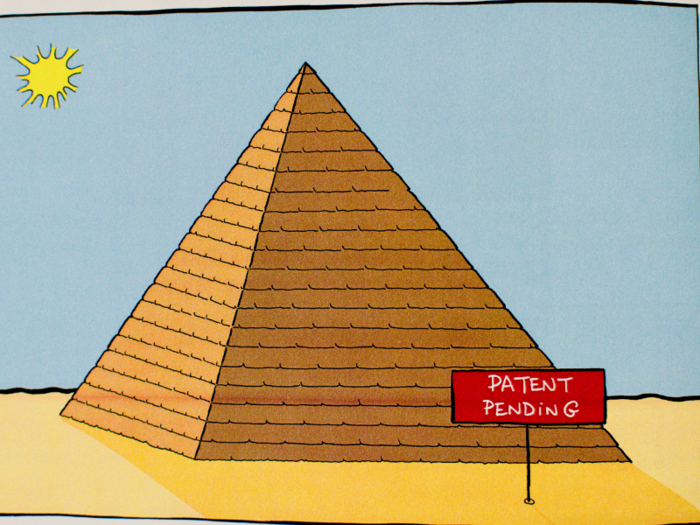
Cornet makes mention of this. And he also notes how when Google sold Motorola to Lenovo, it held on to the company's patents.
Much of the book is very inside baseball. Anyone not working in tech or can't geek out enough will struggle to understand. But if you are either of these, then Goomics is worth the $19.
Popular Right Now
Advertisement